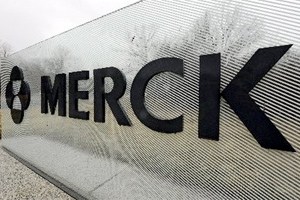 Merck & Co and partner Samsung Bioepis have launched their biosimilar version of Johnson & Johnson’s Remicade (infliximab) in the US, pricing it at a discount to both the brand and a rival biosimilar from Pfizer/Celltrion.
Merck & Co and partner Samsung Bioepis have launched their biosimilar version of Johnson & Johnson’s Remicade (infliximab) in the US, pricing it at a discount to both the brand and a rival biosimilar from Pfizer/Celltrion.
The new biosimilar – called Renflexis (infliximab-abda) – was approved by the FDA in April and has been launched at a list price of $753.39, which is a 35% discount to J&J’s brand. Pfizer and Celltrion’s Inflectra (infliximab-dyyb) biosimilar was priced at a 15% discount to Remicade’s $30,000-a-year price tag.
It’s worth noting that the list prices for all the products do not take into account any discounts offered to payers, but Merck and Samsung Bioepis’ have clearly taken an aggressive approach to pricing Renflexis, which is the first US biosimilar to arise out of their 2013 collaboration.
“Merck believes that biosimilars have the potential to help increase access to these important medicines while also providing savings for the health care system,” commented Dora Bibila, general manager, Merck Biosimilars.
Renflexis was approved by the FDA for the entire range of indications awarded to Remicade, including Crohn’s disease, ulcerative colitis, rheumatoid arthritis, ankylosing spondylitis, psoriatic arthritis and plaque psoriasis.
It appears biosimilars have started to eat into Remicade sales, with J&J reporting a 14% decline in revenues from the product to $1.53bn in the second quarter of this year, although it says the greater impact came from rebates offered to payers.
Sales were flat in 2016 as a whole – Inflectra did not launch until the fourth quarter – but fell 6% in the first quarter of 2017, with a price increase offsetting the declines.
J&J’s chief executive Alex Gorsky told investors last week that “physicians have a strong preference for Remicade versus biosimilars and we enjoy a strong access position in the US”.
He said J&J would “continue to compete in the market and defend our intellectual property against biosimilars launched at risk in the US”. The company has been fighting lawsuits alleging patent infringement by the biosimilars, claiming it has IP protecting Remicade out to 2027, and filed a lawsuit to try to block the Renflexis launch in May.
“We have our contracting in place with all the managed care organisations, so we feel pretty good that Remicade erosion overall – even with the entrance of a new biosimilar – will be less than we previously expected.”




